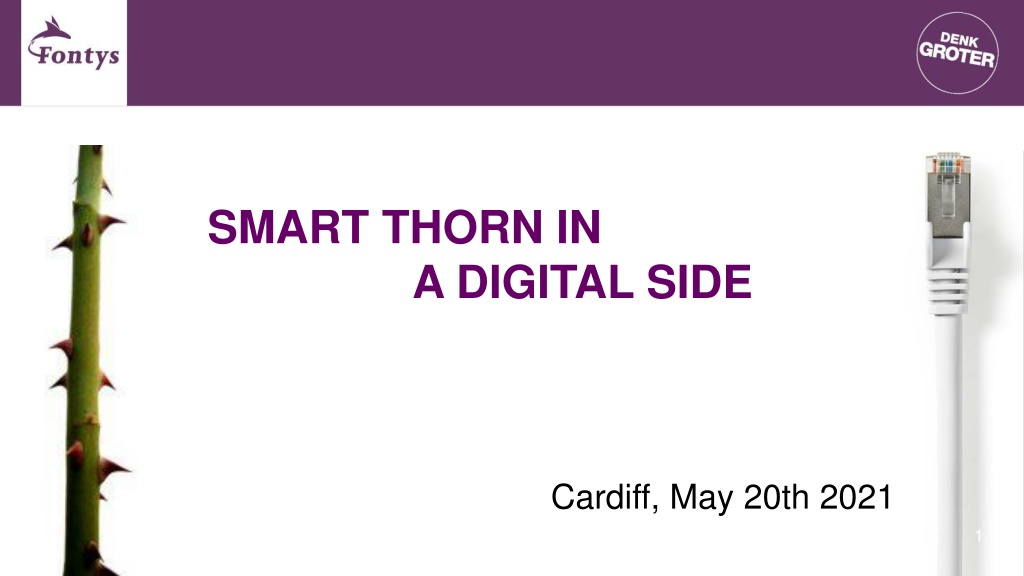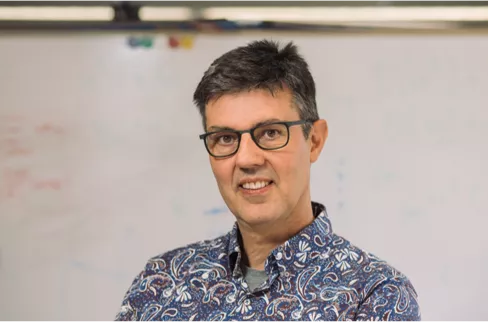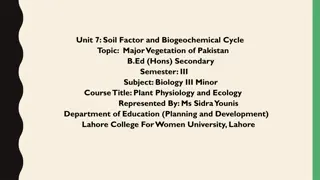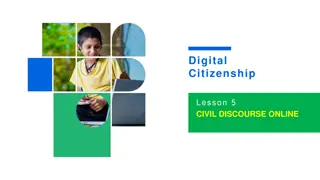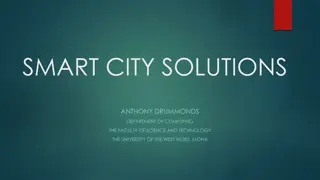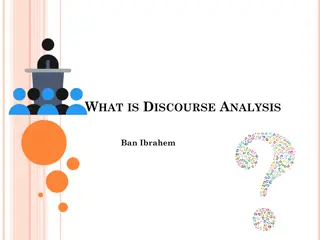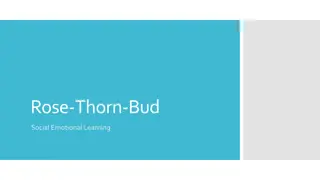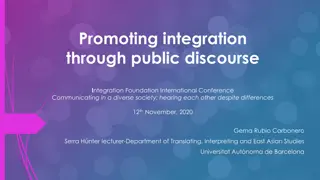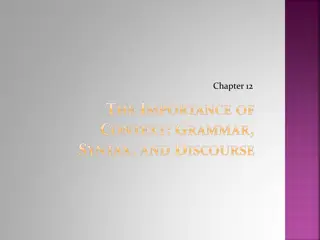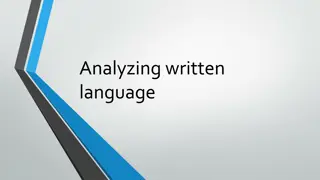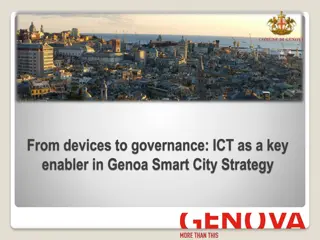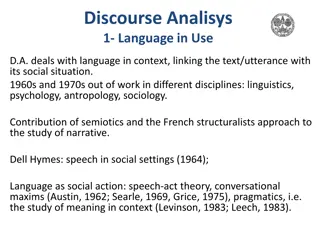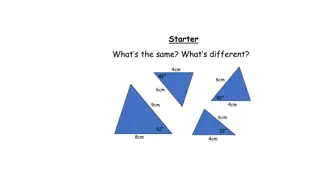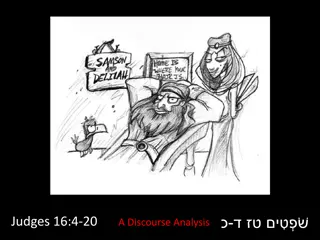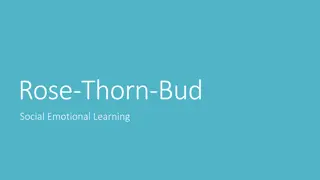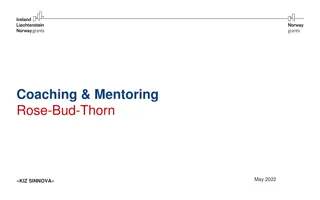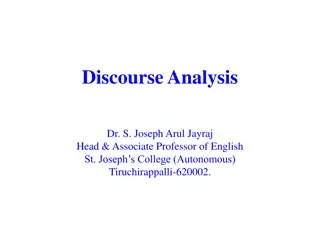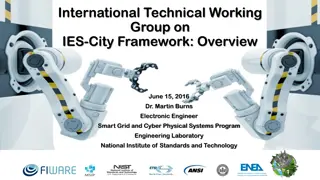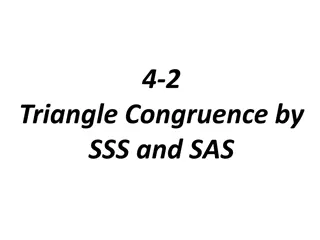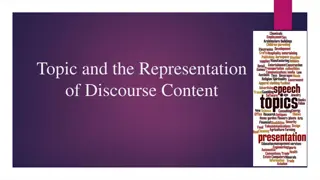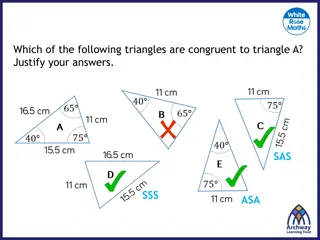Smart Thorn in a Digital Side: Unveiling Insights on Smart City Discourse
Exploring the discourse surrounding smart cities, this research delves into public debates and media coverage from 2015-2019. Interviews with key stakeholders reveal insights on the perception, challenges, and limitations in understanding and discussing smart city initiatives. The findings emphasize the need for improved technical knowledge, ethical considerations, and question-asking abilities in navigating the evolving urban landscapes. A free toolkit is introduced to aid users in making informed decisions on technology's impact.
Download Presentation

Please find below an Image/Link to download the presentation.
The content on the website is provided AS IS for your information and personal use only. It may not be sold, licensed, or shared on other websites without obtaining consent from the author. Download presentation by click this link. If you encounter any issues during the download, it is possible that the publisher has removed the file from their server.
E N D
Presentation Transcript
SMART THORN IN A DIGITAL SIDE Cardiff, May 20th 2021 1
TEAM 2
Smart City District Helmond: one big fieldlab Smart residential and working area where the urban environment has been designed in conjunction with new technologies for transport, health, energy generation and storage and circular construction. 4
Research Goal: to determine whether smart cities have been adequately discussed in public debates Discourse analysis to indicate how the topic of smart city was addressed in the local and national media (2015-2019). qualitative semi-structured interviews with journalists, chief editors, policy makers and aldermen in three smart cities in the Netherlands. research findings were used as input for technical and ethical toolkit that was tested with journalism students. 5
Insights 1/2 Underappreciation in local newspapers / sentiments mainly optimistic More coverage in national newspapers / sentiments more critical 7
Interviews journalists I know it will have a huge impact. But I like to work on the basis of case studies. What does it mean for ordinary people? The topic of smart cities is too abstract for me. GDPR Well, I heard about it I wrote about the start of the smart district. After the test, I asked the city council for the evaluation. They wouldn't give it to me, so I thought: fuck it! I never have a problem with cameras. I think if you have nothing to hide, it's no problem. You just have to behave. 8
Insights 2/2 Technical knowledge and digital skills of journalists (and civil servants) are limited Ethics strongly based on personal perception Time is limited / restricting further research People don t know which questions to ask 9
A FREE TOOLKIT THAT HELPS USERS TO MAKE BETTER DECISIONS ON THE IMPACT OF TECHNOLOGY WWW.TICT.IO 10
Starting points while developing the tool: 1. Technology = multidisciplinary 2. Ethics as a driving force for innovation 3. Non-normative/ non-judgmental 4. Part of the (design cycle) process 5. Context is king positives balance risks future scenarios 11
Questions, a lot of questions Did you consider all stakeholders, even the ones the Are your algorithms transparent to the people impacted Is there any recourse for people who feel they have been What negative effects do you expect from your In what way is your technology contributing to a world you In what way do you consider the fact that data is collected Does your technology have a built in bias? incorrectly or unfairly assessed? Is your technology environmentally sustainable? Did you consider future impact? How is your technology going to solve the problem? Did you make any changes to the design of your How could bad actors use your tech to subvert or attack What could potentially become the equivalent of fake Does your technology register personal data? If yes, what Do you think your technology is compliant with prevailing In which way can you imagine a future impact of the How does the technology influence the user(s) ability to What is the effect of the technology on the health and/or What are the main users/targetgroups/stakeholders for might not be your user or target group, but still might be from the users? Is your technology fair for everyone? by them? What impact is expected from your technology? technology? want to live in? technology because of these questions? the truth? news, bots or deepfakevideos on your platform? personal data? privacy law and can you motivate why? collection of personal data? make his own decisions? wellbeing of the user(s)? your technology? of interest? 13 Impact Human values Stakeholders Data Inclusivity Transparency Sustainability Future Bad actors Privacy
Outcomes and conclusion Journalism students (and eldermen) noticed that there was no need to code or program theirselves to be able to judge on the impact of technology on society The questions and categories helped to broaden their scope It made them feel more secure this conversational toolkit helped them improving public debates around smart cities WITH THIS TOOLKIT, EVERYONE CAN BE A SMART THORN IN A DIGITAL SIDE 14
